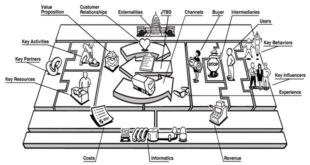The study examines the impact of various firm variables on capital structure decisions in the US automotive industry using panel data from 86 firms over 2011–2022. It finds that firm profitability negatively influences total and short-term debt ratios, while other factors like sales growth, firm size, and tangibility have no significant impact. These insights offer guidance for financial risk management …
Read More »Economy
The effects of migratory village residents social identity on community participation in tourism
This study explores the role of social identity theory in understanding community participation in tourism among migratory village residents, using structural equation modeling. Findings from a survey of 364 residents in Simatai new village, China, indicate that residents’ community, regional, and occupational identities positively influence their support for tourism and participation in community tourism initiatives. The study suggests that local …
Read More »Factors that determine the entrepreneurial intention of university students
Research on entrepreneurial intention, particularly among university students, has intensified, with a focus on comparing intentions between genders, highlighting an existing entrepreneurial gap. This study aimed to analyze factors determining entrepreneurial intention among male and female students in Peru through quantitative analysis using the Partial Least Squares Structural Equation Model (PLS-SEM), integrating Theory of Planned Behavior (TPB) and Business Event …
Read More »Exploring gender discourses in entrepreneurship
Entrepreneurship plays a pivotal role in societal progress and economic growth, with gender’s influence in entrepreneurial discussions remaining a captivating subject for researchers. This study employs a comprehensive bibliometric analysis of 2098 academic papers from Scopus and WOS databases to map the intellectual landscape, identify key topics, and reveal trends in gender discourses in entrepreneurship. By utilizing advanced bibliometric techniques …
Read More »Destination brand identity
The importance of destination brand identity has surged in tourism research, prompting a pivotal focus. This study employs bibliometric mapping analysis to pinpoint influential areas for future exploration. Utilizing SciMAT software, it scrutinizes 295 papers from 1995 to 2022, revealing an evolutionary framework across eight key themes: tourist destinations, digital technologies, co-creation, place branding, cultural identity, sustainability, dimensionality, and destination …
Read More »Digital transformation in an emerging economy
Empirical studies show digital technologies are crucial for value creation, yet existing literature lacks comprehensive concepts on digital orientation and transformation in organizations. This study integrates a resource-based view with digital orientation literature to introduce a new strategic orientation concept for understanding firms’ attitudes toward digital innovation integration, particularly in emerging economies. Findings reveal that IT infrastructure availability and digital …
Read More »Improving commissioning through design thinking
Public policies aim to enhance citizen welfare through evidence-based approaches, including design thinking, which can optimize service commissioning by leveraging local knowledge and collaboration, thereby improving social and economic outcomes. Effective public policies and programs, when well-designed and implemented, can significantly enhance economic and social outcomes, functioning as investments where benefits surpass costs over time. Current initiatives emphasize evidence utilization, …
Read More »Business model innovation for resilient international growth
This study explores how small and medium-sized enterprises (SMEs) innovate their business models to achieve organizational resilience during international expansion. Through a multiple-case study of three Finnish SMEs, key sources of resilience such as digitalization, strategic collaboration, customer intimacy, agile resource utilization, and revenue model improvement were identified, highlighting the necessity for significant business model innovation for resilient international growth. …
Read More »The determinants of bank stability
This research explored factors influencing bank stability in Vietnam from 2010 to 2018, using data from listed commercial banks. Employing the Generalized Method of Moments (GMM) regression to address endogeneity, findings revealed positive impacts from indicators such as equity-to-asset ratio, bank size, and revenue diversification on bank stability. Additionally, macroeconomic factors, continuity in stability from the previous year, and positive …
Read More »Identification of export potential in foreign trade
Slovakia, as a small open economy, heavily relies on foreign demand for economic growth, primarily within the European Union (EU). To diversify its foreign trade, the country aims to explore export opportunities to Kazakhstan, a key economic player in Central Asia. Analyzing trade indicators, the study reveals substantial untapped potential, with Slovakia needing to focus on higher-value-added goods for export …
Read More » Canadian Academy Discover, Publish, Thrive
Canadian Academy Discover, Publish, Thrive









